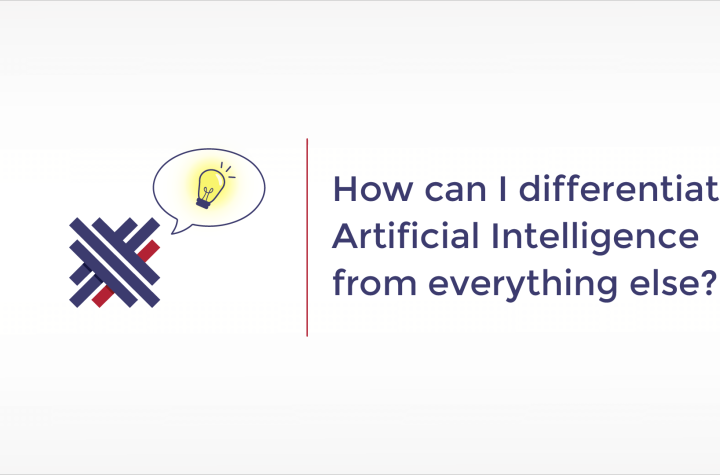How can I differentiate Artificial Intelligence from everything else?

In next week’s Exponential Chats, some of the team members responsible for Amalgam’s development will have a chat about how Artificial Intelligence is defined with some practical examples and easy tips on how to distinguish AI from everything else.
– Adriano Marques is the founder and CEO of Exponential Ventures.
– Nathan Martins is a Machine Learning/DevOps Engineer at Exponential Ventures, where he works on projects to democratize AI, as well as other cutting edge innovations.
– Rhuan Silva works as FullStack, DevOps Engineer and now he’s majoring in Big Data and Artificial Intelligence.
It is not news that there is an AI revolution happening in the world today. Every single industry is now trying to harness the power of Artificial Intelligence to differentiate themselves from their competitors, reduce operating costs, increase profits, or improve efficiency.
And that is just in the realm of commercial applications of Artificial Intelligence. If you haven’t realized yet, the world is currently going through what I like to call the Last Arms Race. Except that in this race, countries are not competing for arms or space superiority. They’re competing for superiority in everything through the pursuit of ever more advanced Artificial Intelligence until the first country gets to what we call the General Artificial Intelligence immediately ending the arms race and starting a new era. We’ll talk more about this topic in another Exponential Chats episode.
Now, back to commercial applications we’ve seen several amazing innovations that are disrupting industries. Virtual Assistants, Chatbots, Sentiment Analysis, Image Recognition, and Self-driving cars are just a few ways that we’re experiencing the encroaching of Artificial Intelligence in our lives for better or worse.
The point, however, is that companies have noticed that AI is the future, and adding AI to anything they do automatically puts them in a more advantageous position in the market. With AI your product seems better, more competitive, more futuristic, and customers are willing to pay a premium for it.
This race for product superiority through AI proved to be much harder and costly than most companies were prepared for. So, a few of them started to claim Artificial Intelligence even though there are no apparent features that customers would perceive as Intelligent. That’s what we call Fake AI products. Fake AI products are either completely lacking in AI capabilities or the AI capabilities are irrelevant to the consumer.
To make things worse, there is no agreed-upon definition of what Artificial Intelligence is and most consumers are not equipped to differentiate an AI-powered product from everything else. And when a product is intelligent enough to be clearly perceived as AI, it will soon become mainstream and people will stop being impressed by it and stop considering it intelligent. This is a well-known phenomenon known as the AI Effect: people will rationalize that a manifestation of intelligence is not intelligence once they understand how it works or gets used to it.
All of that doesn’t change the fact that we need to be able to understand what is Artificial Intelligence and how to identify it wherever it may present itself.
So… here is our attempt to shed some light on this matter. How can I differentiate between Artificial Intelligence and everything else?
Exponential Chats is a live event conducted by our parent company, Exponential Ventures. In this event, our team members and guests have an in-depth conversation about Exponential Technologies, Entrepreneurship, and some of the world’s most challenging outstanding problems.


